Nomads Diving is a dive center in Fiji, based on Mana Island. We are affiliated with Mana Lagoon Backpackers, a hostel right in front of the ocean. We offer the best prices and value for certified divers on the island. New to scuba diving altogether? We will guide you in your first underwater experience…
Mana Island, Fiji

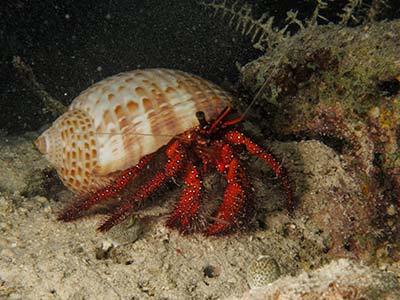
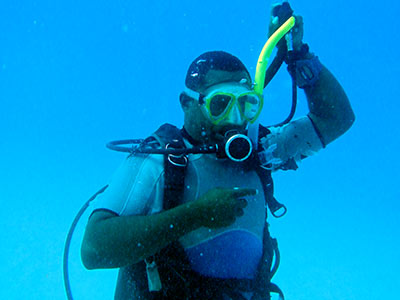
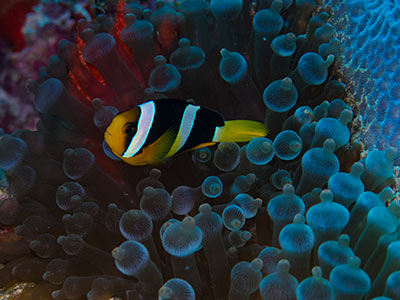

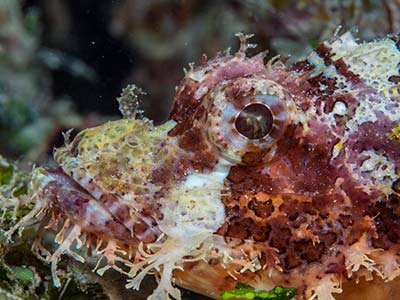
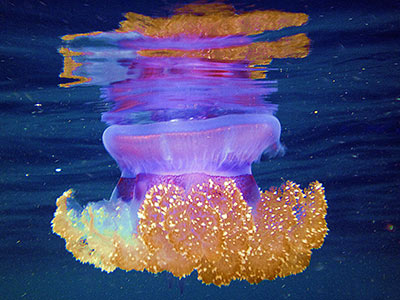
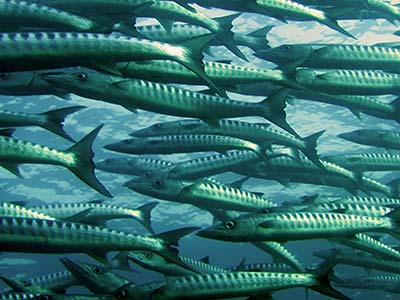
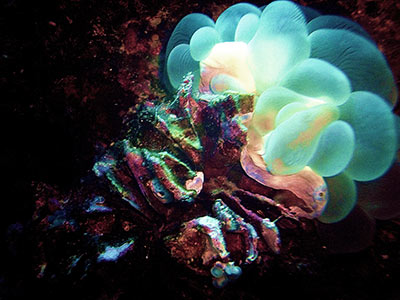

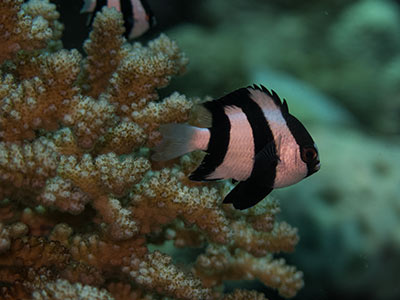
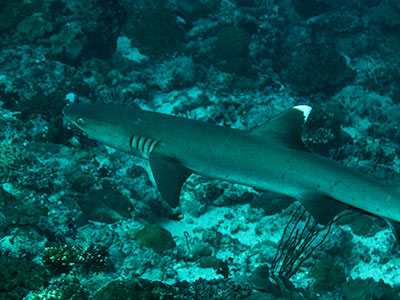
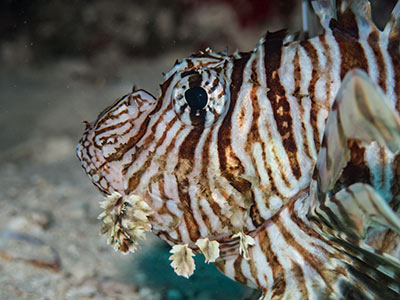
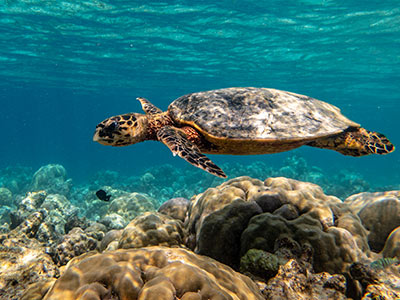
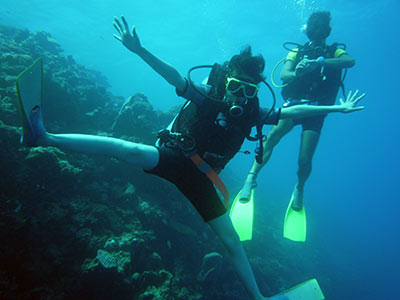
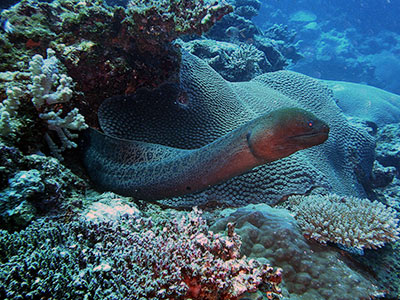
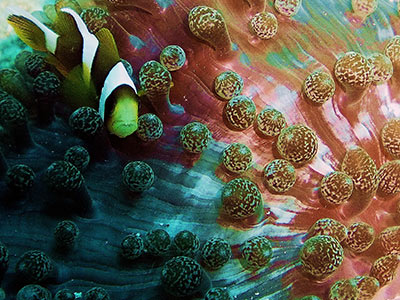
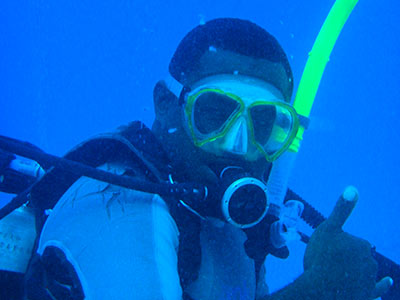
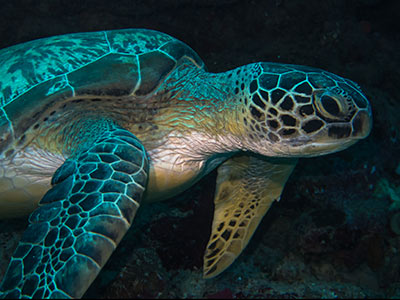
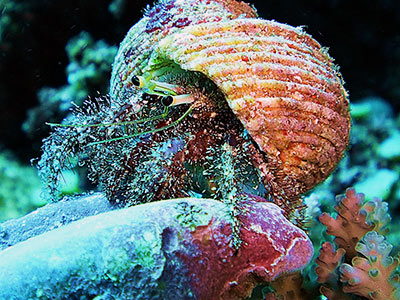
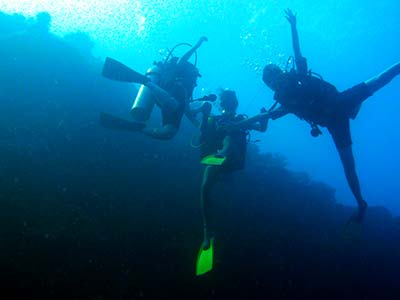
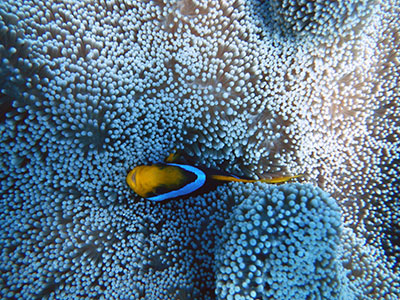
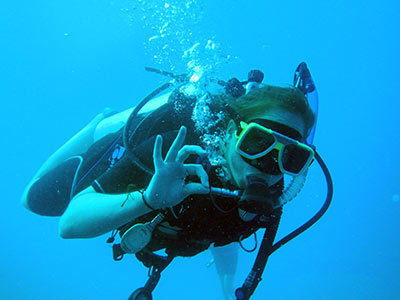
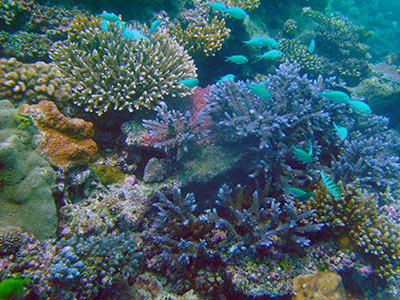
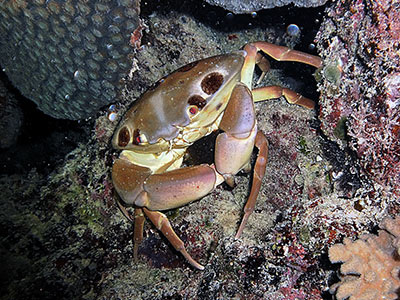
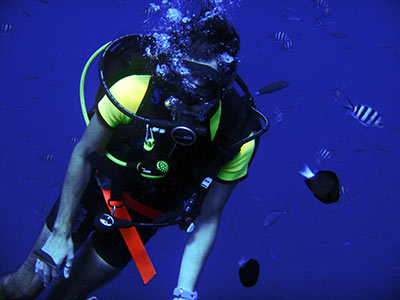
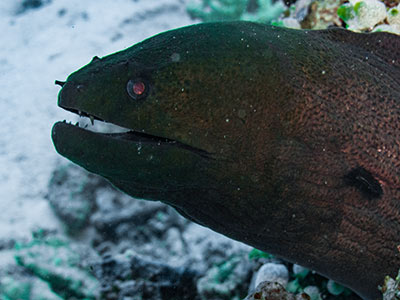
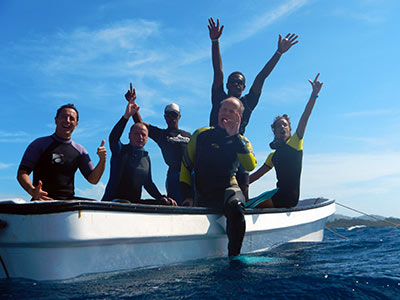
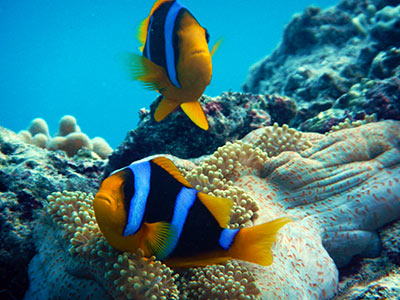
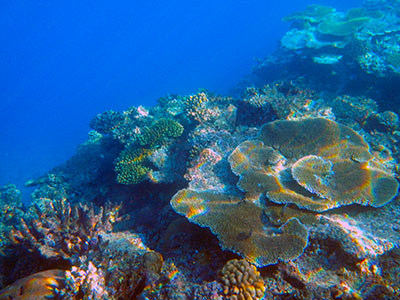
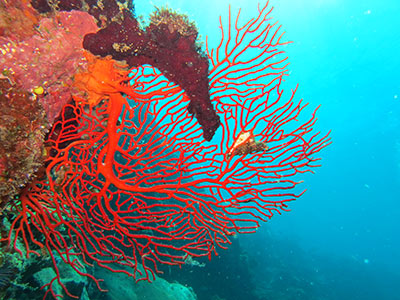
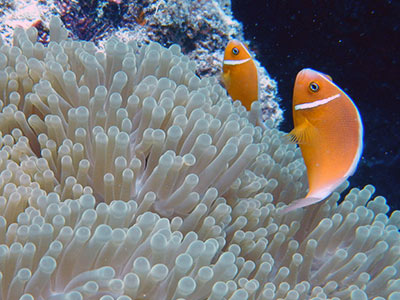
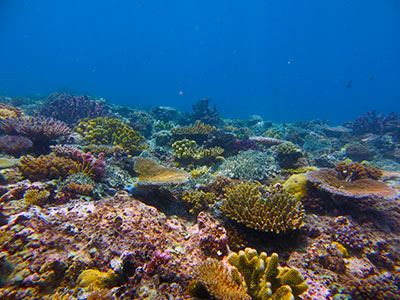
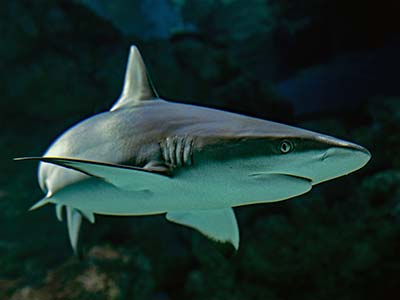
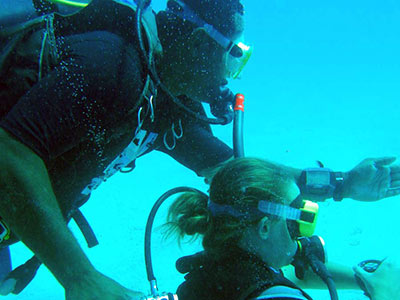
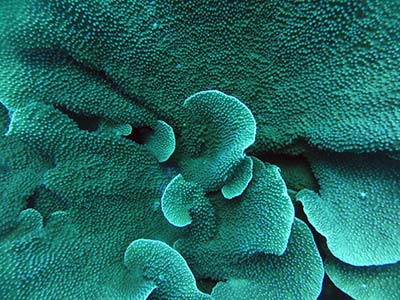
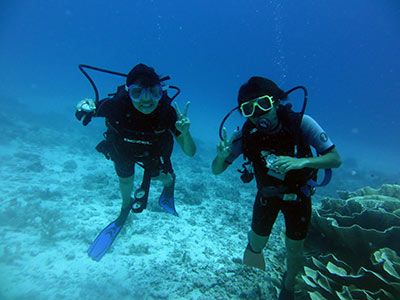
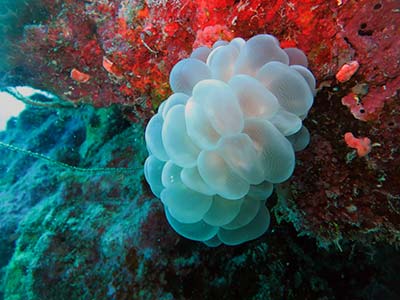
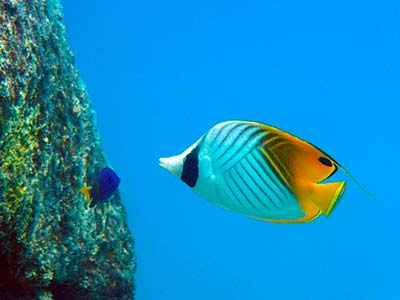
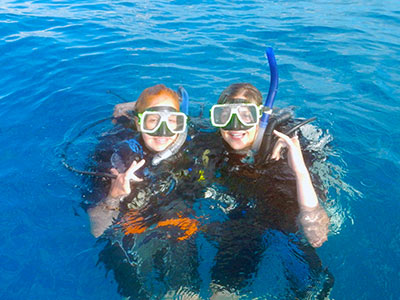
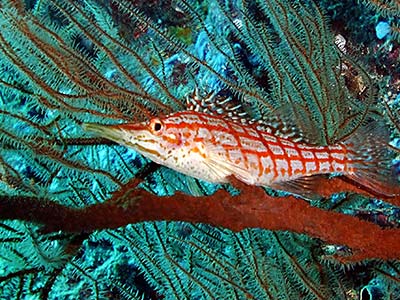
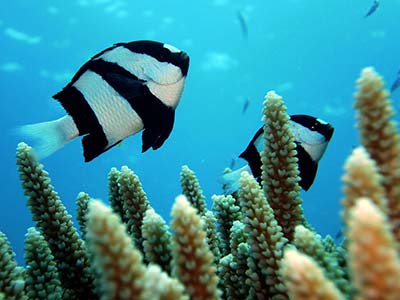
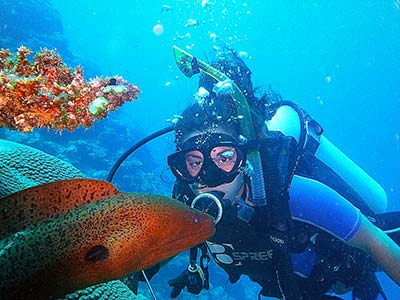
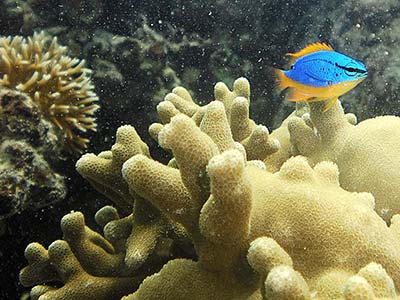
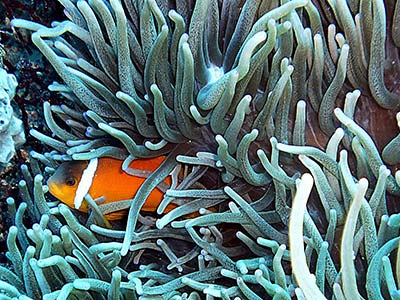
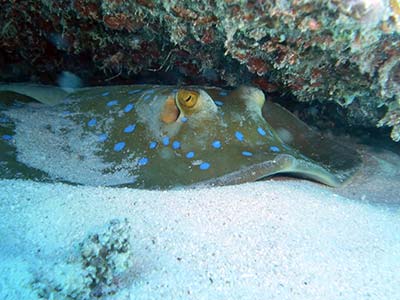
Your first breath underwater, this experience is not a certification course. You will dive on-location to a maximum of 12 meters accompanied by a dive professional.
Theory + Skills + 1 Ocean Dive
This certification allows you to dive up to 12 meters accompanied by a dive professional. Scuba Diver is ½ the Open Water Diver course. You can continue this course later-on and gain your Open Water Diver level.
Theory + Skills + 2 Ocean Dives
This certification allows you to dive up to 18 meters accompanied by another diver.
This is the standard scuba diving certification.
Theory + Skills + 4 Ocean Dives
This certification allows you to dive up to 30 meters accompanied by another diver. You will do 5 Adventure Dives: “Deep” and “Navigation” are mandatory + 3 Adventure Dives of your choice.
Theory + Skills + 5 Ocean Dives
This certification teaches you how to respond to a medical emergency in the context of scuba diving. Emergency First Response (EFR) is mandatory to achieve this level.
Theory + Skills + 3 Ocean Dives
The first step to become a professional diver and work as a dive guide. GO Pro!
Theory + Skills & many dives…
Diving in our waters you will have the chance to see a vast amount of marine life, like sea turtles, dolphins, moray eels, groupers, snappers, nudibranch, various reef sharks, and amazing coral reefs – home to thousands of colorful fish.
Come face to face with a Grey Reef Shark at the “Supermarket”, dive with turtles in Turtle Head, Tua Nuku on the other side of Mana Island, Seven Sisters a multi-reef site, we have Salamander Wreck, South Reef, Bird Rock, West Wing, Far Reef, Gotham City and more…
Try a night dive and encounter Whitetip Reef Sharks, Moray eels and turtles, or sign-up for a day trip to The Pinnacle!
Theory + Skills + 1 Dive
1 Dive
Skills + 2 Dives
Skills + 4 Dives
Skills + 5 Dives
Skills + 3 Dives
Skills
Skills + 20 Dives * if less than 60 dives & min. 40 logged dives.
incl: Equipment + 1 Dive
incl: Equipment + 2 Dives
incl: Equipment + 3 Dives
incl: Equipment + 4 Dives
incl: Equipment + 5 Dives
incl: Equipment + 6 Dives
incl: Equipment + 8 Dives
incl: Equipment + 10 Dives. No private equipment discount.
incl: Equipment + torch
A: We are Nomads Diving Fiji Inc.
Owned and operated by Laitia Tukai a PADI Instructor with decades of experience.
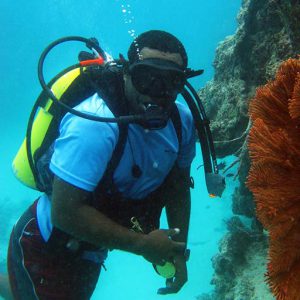
A: We provide everything you need for the courses for free – Mask, Fins, Snorkel, BCD, Regulator, Weights, Wet Suit, Pressure Gauge, Depth Gauge & Compass.
Although we provide you with everything you need to dive with us, having your own mask, snorkel and fins is definitely a good thing as it will allow you to go snorkeling from the shore of the island.
We also rent snorkeling equipment at a low cost if you don’t have your own.
A: Please review the Rates section of this page for the latest prices concerning scuba lessons, or diving for certified divers.
A: It’s possible to complete your confined and open water dives in as few as three or four days by completing the classroom portion online via PADI eLearning or individual study here on the island.
The PADI courses are incredibly flexible and performance based, which means that we can offer a wide variety of schedules, paced according to how fast you progress.
Your instructor’s interest is in your learning to scuba dive, not in how long you sit in a class. So, training is based upon demonstrating that you know what you need to know and can do what you need to do. This means that you progress at your own pace – faster or slower depending upon the time you need to become a confident scuba diver who dives regularly.
You also can start learning to scuba dive online scuba dive online right now with PADI eLearning.
A: If you have an appetite for excitement and adventure, odds are you can become an avid scuba diver. You’ll want to keep in mind these requirements as an example for the PADI Open Water course:
Minimum Age:
Physical:
For safety, all students complete a brief scuba medical questionnaire that asks about medical conditions that could be a problem while diving. If none of these apply, you sign the form and you’re ready to start. If any of these apply to you, as a safety precaution your physician must assess the condition as it relates to diving and sign a medical form that confirms that you’re fit to dive. In some areas, local laws require all scuba students to consult with a physician before entering the course.
Download the Scuba Medical Questionnaire.
Waterskills:
Before completing the PADI Open Water Diver course, your instructor will have you demonstrate basic waterskill comfort by having you:
About Physical Challenges:
Any individual who can meet the performance requirements of the course qualifies for certification. There are many adaptive techniques that allow individuals with physical challenges to meet these requirements. Individuals with paraplegia, amputations and other challenges commonly earn the PADI Open Water Diver certification. Even individuals with more significant physical challenges participate in diving.
Learning Materials :
Unless you choose PADI eLearning, you’ll need and use the following training materials during the PADI Open Water Diver course, and for your review and reference after the course:
We can set you up with these as part of the course enrollment process.
A: We are located on Mana Island, an island that is part of the Mamanuca Islands in Fiji.
A: With the necessary training and experience, the limit for recreational scuba diving is 40 metres/130 feet.
Beginner scuba divers stay no deeper than 12 metres/40 feet. Although these are the limits, some of the most popular diving is no deeper than 12 metres/40 feet where the water’s warmer and the colors are brighter.
A: Aside from pregnancy, no. Because physiologists know little about the effects of diving on the fetus, the recommendation is that women avoid diving while pregnant or trying to become pregnant. Menstruation is not normally a concern.
A: While this may sound strange to you, when you’re lucky, you get to see a shark. Although incidents with sharks occur, they are very, very rare and with respect to diving, primarily involve spear fishing or feeding sharks, both of which trigger feeding behavior. Most of the time, if you see a shark it’s passing through and a relatively rare sight to enjoy.
Around the many sites we go diving in the vicinity of Mana Island, you’re likely going get the chance to see many Whitetip Reef Sharks, and sometimes also Blacktip Reef Sharks and Grey Reef Sharks. All of which are armless beautiful creatures, that will delight you with their underwater grace. And most likely those sharks will be more afraid of you than you are of them – as soon as they spot you they will gently cruise away…
A: That’s not likely because you have a gauge that tells you how much air you have at all times. This way, you can return to the surface with a safety reserve remaining.
But to answer the question, if you run out of air, your buddy has a spare mouthpiece that allows you to share a single air supply while swimming to the surface. There are also other options you’ll learn in your scuba diving training.
A: Sun burn and seasickness, both of which are preventable with over the counter preventatives. The most common injuries caused by marine life are scrapes and stings, most of which can be avoided by wearing an exposure suit, staying off the bottom and watching where you put your hands and feet.
A: Yes, you can wear soft contact lenses while diving, or you can have someone install custom-made prescription lenses in your mask.
A: No, assuming you have no irregularities in your ears and sinuses. The discomfort is the normal effect of water pressure pressing in on your ears. Fortunately, our bodies are designed to adjust for pressure changes in our ears – you just need to learn how.
If you have no difficulties adjusting to air pressure during flying, you’ll probably experience no problem learning to adjust to water pressure while diving.
A: Not necessarily. Any condition that affects the ears, sinuses, respiratory function or heart function or may alter consciousness is a concern, but only a physician can assess a person’s individual risk.
Physicians can consult with the Divers Alert Network (DAN) as necessary when assessing a scuba candidate. Download the Medical Statement to take to your physician.
A: People find the “weightlessness” of scuba diving to be quite freeing. Modern scuba masks are available in translucent models, which you may prefer if a mask makes you feel closed in.
During your scuba diving training, your instructor gives you plenty of time and coaching to become comfortable with each stage of learning. Your scuba instructor works with you at your own pace to ensure you master each skill necessary to become a capable scuba diver who dives regularly.
A: We encourage it! We want our students to make great dive buddies as well as great divers. You can join and help your friend in his study and even be present on his first dive and tag along! As a certified diver, you might also want to take the opportunity to get an advanced certification or take a specialty course such as Rescue Diver.
Level: Beginner
Level: Beginner
Level: Beginner
Level: Continuing Education
Advanced Open Water Diver
Level: Continuing Education
Rescue Diver
Level: Professional